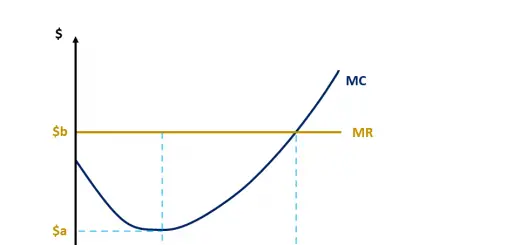What is Bi-Monthly Payroll? Explanation with Examples
Table of Contents:
- What is Bimonthly Payroll?
- Difference Between Bi-Monthly Payroll and Semi-Monthly Payroll
- Pay Period & Pay Days of Bimonthly Payroll
- How does Bi-Monthly Pay Schedule Work
- Example of Bimonthly Payroll
- Is it Beneficial for an Employee in Bi-Monthly Payroll?
- Is it Beneficial for an Employer in Bi-Monthly Payroll?
- Tips to Implement Bi-Monthly Payroll
- Difference Between Bi-Weekly, Semi-Monthly, and Bi-Monthly Payroll Schedules
- Best Practices for Managing Payroll Periods
What is Bimonthly Payroll?
Bimonthly payroll means that the company pays its employees once every two months. Employees in bi-monthly pay receive a salary every two months (six times a year).
In many locations in the USA, Canada, and the world, the maximum payroll period allowed is a month. Hence, bi-monthly payroll is not very common in the world.
Difference Between Bi-Monthly Payroll and Semi-Monthly Payroll
Bi-Monthly Payroll: A bi-monthly pay schedule involves paying employees once in a two months. There are a total of 6 pay periods in a year.
Semi-Monthly Payroll: A semi-monthly pay schedule involves paying employees two times a month. This results in 24 pay periods in a year.
You can refer to the Semi-Monthly Payroll Detail Article to understand more about the semi-monthly payroll (paying employees two times a month).
Pay Period & Pay Days of Bimonthly Payroll
Bimonthly pay is when an employer pays the employees once every two months. Bimonthly pay contains 6 pay periods per year (Every calendar year has 12 months, hence 12/2 = 6).
Pay day of Bimonthly Payroll is usually the last day of two months. For the November and December months, the payday usually is 31st December. But it can vary based on the company policies.
How does Bi-Monthly Pay Schedule Work
A bi-monthly pay schedule refers to a payment system in which employees receive their wages once every two months. Here’s how it works:
- Pay Frequency: Employees are paid once in every two months. This results in 6 pay periods in a year. This differs from a biweekly pay schedule, where employees are paid every other week which results in 26 pay periods in a year.
- Pay Dates: Employers usually set fixed pay dates for each period. For example, employees might be paid on the 1st or 15th or last day of every two months.
- Calculating Wages: To determine the amount of each paycheck, employers divide the employee’s annual salary or hourly rate by 6 (the number of pay periods in a year for a bi-monthly schedule).
- For salaried employees, the paycheck amount remains consistent each pay period, unless there are deductions or changes in benefits.
- For hourly employees, the paycheck amount varies depending on the number of hours worked during each pay period.
- Overtime Calculation: Overtime pay is calculated based on the hours worked in a single workweek, not across pay periods. If an employee works overtime hours during a pay period, they will receive the additional pay on the paycheck for that period.
- Benefits and Deductions: Like any pay schedule, benefits, taxes, and other deductions are typically taken out of each paycheck according to the employee’s preferences and applicable laws.
- Budgeting Considerations: Employees receiving bi-monthly paychecks may need to budget differently than those on other pay schedules. They may need to account for bills, rent/mortgage payments, and other financial obligations due for two months.
Example of Bimonthly Payroll
As an example, let’s assume that an employee joined at an annual salary of $60,000. There are 6 pay periods of bimonthly payroll. Hence for each pay, the employee will get $10,000 ($60,000 / 6). The employee’s pay-sheet will indicate the gross salary of $10,000 on each bi-monthly payday.
Generally, employees have to pay the same amount of taxes despite what payroll schedule the company follows.
Is it Beneficial for an Employee in Bi-Monthly Payroll?
The employee receives the paycheck once every two months. Hence, it is difficult for an employee to plan the expenses for two months at a stretch. But the paycheck is a large one since it contains two months’ payments. Hence compared with Semimonthly, Biweekly, or Monthly payroll, it is not beneficial for an employee to receive payment via Bimonthly Payroll.
Even though the paycheck is larger, the total amount received at the end of the year is the same despite the pay frequency.
Is it Beneficial for an Employer in Bi-Monthly Payroll?
When a company uses a Bimonthly payroll, it reduces the operational time spent on payroll processing since the payroll process happens once every two months. Payroll happens often which results in less work for the employer. Hence compared with Semimonthly, Biweekly, or Monthly payroll, it is beneficial for an Employer to choose Bimonthly Payroll.
Tips to Implement Bi-Monthly Payroll
Implementing a bi-monthly payroll system requires careful planning and attention to detail to ensure a smooth transition. Here are some tips to help you implement a bi-monthly payroll effectively:
- Communicate Clearly: Inform your employees about the upcoming change well in advance. Clearly explain the new pay schedule, including the pay dates and any adjustments to payroll procedures. Address any concerns or questions they may have to alleviate confusion.
- Review Legal Requirements: Familiarize yourself with local labor laws and regulations regarding payroll schedules, wage payments, and tax requirements. Ensure that your new bi-monthly payroll system complies with these regulations to avoid any legal issues.
As an example: implementing a bi-monthly payroll in the USA must comply with Fair Labor Standards Act (FLSA) regulations, ensuring minimum wage, overtime pay eligibility, and accurate record keeping. Employers must also adhere to state wage and hour laws, tax withholding requirements, and provide clear communication to employees regarding pay schedules and deductions. - Update Payroll Systems: Update your payroll software or systems to accommodate the new bi-monthly schedule. Make sure that your payroll system can accurately calculate wages, deductions, and taxes based on the new pay frequency.
- Adjust Employee Records: Update employee records to reflect the new pay schedule. Verify and adjust employee information, including salary or hourly rates, tax withholding preferences, benefits deductions, and direct deposit details as necessary.
- Coordinate with Finance and HR: Work closely with your finance and human resources departments to coordinate the implementation of the bi-monthly payroll system. Ensure that everyone understands their roles and responsibilities in the payroll process and that any necessary changes to accounting or HR procedures are made accordingly.
- Test the System: Conduct thorough testing of your payroll system to identify and resolve any issues before the new pay schedule goes into effect. Verify that payroll calculations are accurate, and payments are processed correctly for all employees.
- Provide Training: Offer training sessions or resources to payroll administrators and managers responsible for processing payroll. Ensure they understand the new procedures, deadlines, and any changes to payroll-related tasks.
- Establish Contingency Plans: Develop contingency plans to address potential issues or delays that may arise during the transition to the bi-monthly payroll system. Have backup procedures in place to handle payroll processing errors, missed deadlines, or other unforeseen circumstances.
- Monitor and Adjust: Monitor the implementation of the new pay schedule closely during the initial months to identify any problems or areas for improvement. Solicit feedback from employees and payroll administrators, and be prepared to make adjustments as needed to ensure the system runs smoothly.
- Provide Ongoing Support: Offer ongoing support to employees and payroll administrators as they adjust to the new bi-monthly payroll system. Address any concerns or issues promptly and continue to communicate updates and reminders as necessary.
Difference Between Bi-Weekly, Semi-Monthly, and Bi-Monthly Payroll Schedules
| Biweekly Payroll | Semimonthly Payroll | Bimonthly Payroll | |
|---|---|---|---|
| Pay Period | Every Other Week | Twice A Month | Once Every Two Months |
| Number of Payments Per Year | 26 | 24 | 12 |
| Number of Payments Per Month | For 10 Months 2, For 2 Months 3 | 2 Payments Per Month | 1 Payment Per 2 Months |
| Payment Usually Happens on a Specific Day of a Week | Yes | No | No |
| Practical for Non-Exempt Employee Payment | Yes | No / Difficult | No / Difficult |
| Payment Amount Per Pay Period As Example. Assumption: Annual Salary of $78,000 | $78,000 / 26 = $3,000 | $78,000 / 24 = $3,250 | $78,000 / 12 = $6,500 |
| Best Advantage As an Employee | Employees Feel More Consistent | Payment Method is Easy to Understand | Paycheck Amount will be Comparatively High |
| Biggest Disadvantage As an Employee | Paycheck will be Comparatively Less | Not Practical with Non-Exempt Employees | Difficulty in Personal Budgeting |
Best Practices for Managing Payroll Periods
Here are some payroll period best practices to follow,
- Consistency: You should maintain a regular and consistent payroll schedule to provide predictability for employees.
- Compliance: You have to ensure compliance with federal, state, and local laws regarding pay frequency, overtime pay, and tax withholding.
- Accurate Record-Keeping: You have to maintain accurate records of hours worked, wages paid, and deductions to facilitate payroll processing.
- Communication: You should clearly communicate payroll schedules, pay rates, deductions, and any changes to employees in advance to avoid confusion and ensure transparency.
- Automation: It is great if you can utilize payroll software or systems to automate payroll processing, reduce errors, and increase efficiency.
- Review and Audit: You have to regularly review and audit payroll processes and records to identify and correct any errors or discrepancies promptly.
- Employee Self-Service: It is a good practice if you can provide employees with access to self-service tools or portals to view their pay stubs, update personal information, and access relevant payroll documents.
- Training and Education: You have to train payroll staff and managers on relevant laws, regulations, and best practices to ensure compliance and accuracy in payroll processing.
- Vendor Management: If you are outsourcing payroll, carefully select and manage payroll service providers to ensure reliability, security, and compliance with legal requirements.
- Feedback and Improvement: You can obtain solicit feedback from employees and stakeholders to identify areas for improvement in payroll processes and address any concerns or issues promptly.
Read More:
- Bi-Monthly Payroll
- Bi-Weekly Payroll
- Semi-Monthly Payroll
- Differences of Payroll Methods


